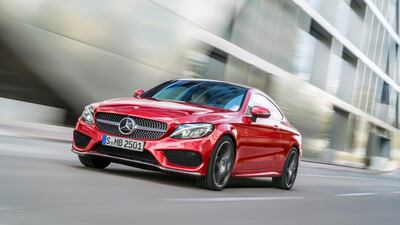German car maker Daimler has announced that its Mercedes-Benz brand would be all electric by the end of the decade, where market conditions allow.
By next year, it will have electric vehicles (EVs) in all segments, the company said, and from 2025, “all newly launched architectures will be electric-only", with consumers also having the option of purchasing an electric alternative for every model the company makes.
The company will keep producing existing combustion models until 2030 and stop making them afterwards.
“The EV shift is picking up speed … especially in the luxury segment, where Mercedes-Benz belongs. The tipping point is getting closer and we will be ready as markets switch to electric only by the end of this decade,” Daimler’s chief executive Ola Kallenius said.
To enable this shift, Mercedes-Benz will invest over €40 billion ($47.2bn) in EVs between 2022 and 2030. The company will launch three new electric-only vehicles in 2025.
“This step marks a profound reallocation of capital. By managing this faster transformation while safeguarding our profitability targets, we will ensure the enduring success of Mercedes-Benz,” added Mr Kallenius.
Restrictive emissions and fuel-efficiency regulations have forced car manufacturers to focus on vehicles that are more environmentally friendly.
In March, the Swedish car maker Volvo said it would be fully electric by 2030. In February, Jaguar Land Rover said its luxury brand Jaguar will go all electric by 2025 as it aims to become a net-zero carbon business by 2039.
In January, General Motors, the largest US car maker, said it plans to eliminate petrol and diesel light-duty cars, including SUVs, by 2035. South Korean car maker Kia is planning to launch its first EV in the first quarter of this year, while Germany's Volkswagen, the second-largest car maker by sales last year, plans to unveil about 70 new electric models by 2028.
Mercedes-Benz said it needs a battery capacity of more than 200 Gigawatt hours and it plans to set up eight gigafactories for producing cells, together with its partners around the world.
“Next-generation batteries will be highly standardised and suitable for use in more than 90 per cent of all Mercedes-Benz cars and vans,” the company said.
By next year, eight Mercedes-Benz EVs will be produced at seven locations on three continents. All passenger car and battery assembly sites run by the company will switch to carbon neutral production by 2022.
The company also plans to install a new battery recycling factory in Kuppenheim, Germany, which will start operations in the next two years.


